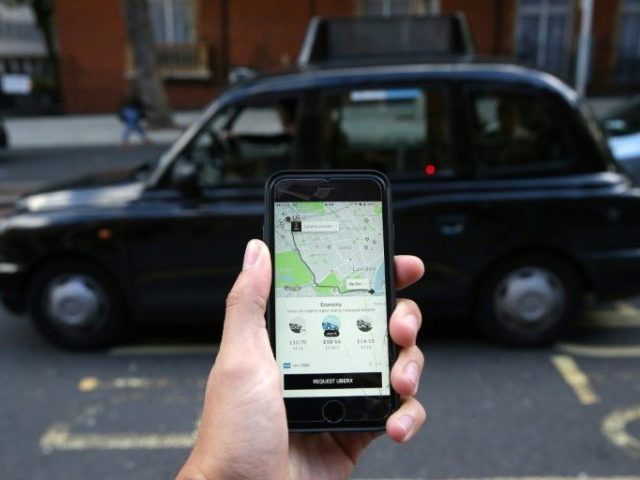In a recent article, Uber software engineer Kurt Nelson explained why he would be voting against California Prop 22 despite being employed by the company pushing it. Prop 22 seeks to classify gig economy drivers as independent contractors, a cause Uber has spent many millions of dollars supporting. It would in effect reverse the recently passed AB 5 law that forces gig economy companies like Uber and Lyft to classify their drivers as employees instead of contractors.
In an article published by TechCrunch titled “I’m a software engineer at Uber and I’m voting against Prop 22,” Uber software engineer Kurt Nelson explains why he will be voting against proposition 22 and why he believes that the issue is “bigger than” his employment at Uber.
According to Ballotpedia, Proposition 22 seeks to “define app-based transportation (rideshare) and delivery drivers as independent contractors and adopt labor and wage policies specific to app-based drivers and companies.” It is a response to AB 5, a California law classifying gig economy workers as employees. Uber and Postmates have sued the state to stop AB 5, and the company has bankrolled a massive campaign in support of prop 22.
Nelson writes that Uber has already invested $47.5 million dollars in the proposition 22 campaign and that the company claims the bill would be best for Uber drivers. Nelson writes:
I’ve decided to speak out against my employer because I know what it’s like to work with no benefits. Before joining Uber, I worked a range of low-wage jobs from customer service at Disneyland to delivering pizza with no benefits. Uber is one of several large companies bankrolling California’s Proposition 22. They’ve now contributed $47.5 million dollars to the campaign. At work, management tells us that passing Prop 22 is for the best because it is critical for the company’s bottom line. Yet, a corporation’s bottom line will not and should not influence my vote.
Uber claims Prop 22 would be good for drivers, but that depends on Uber the company treating drivers better. I know from my experience working as an Uber engineer there is a slim chance of that happening. At the beginning of the pandemic, we learned Uber was about to embark on a round of layoffs. For weeks we sat around not knowing if we’d keep our jobs and health insurance.
Ultimately the company laid off 3,500 workers in the middle of a pandemic, and they did it via a three-minute Zoom call. For many of us, the layoffs seemed random and arbitrary, as if managers had been given a quota of people they should fire, not dissimilar to the way in which Uber deactivates drivers without recourse. The entrenched culture of not caring about workers had extended to engineers. We realized we too are a fungible resource.
As a software engineer, I have a very different experience working for Uber than drivers do. Being classified as an employee affords me benefits including healthcare, a retirement plan, stock vesting and the ability to take paid vacation and sick leave. Uber drivers are not afforded these benefits, since Uber misclassifies them as independent contractors. Since January 1 of this year, the law has been clear: Gig drivers should be classified as employees. Yet Uber refuses to obey the law and is now seeking to get Prop 22 passed so they can write a new set of rules for themselves.
The software engineer recognizes that his employment conditions are dramatically different than Uber drivers. He has benefits such as healthcare insurance that independent contractors don’t receive and notes that Uber refuses to obey the law that would change these conditions.
Nelson states that if it was not for his previous experience as a gig driver himself, he would have taken Uber’s argument at face value but his prior experience provided him with the insight to call the company out on their claims. Nelson states: “This was never about disrupting an industry; their business model is the same as any other company’s — cut costs no matter what in order to increase profits.”
Read Nelson’s full article at TechCrunch here.
Lucas Nolan is a reporter for Breitbart News covering issues of free speech and online censorship. Follow him on Twitter @LucasNolan or email him at lnolan@breitbart.com

COMMENTS
Please let us know if you're having issues with commenting.